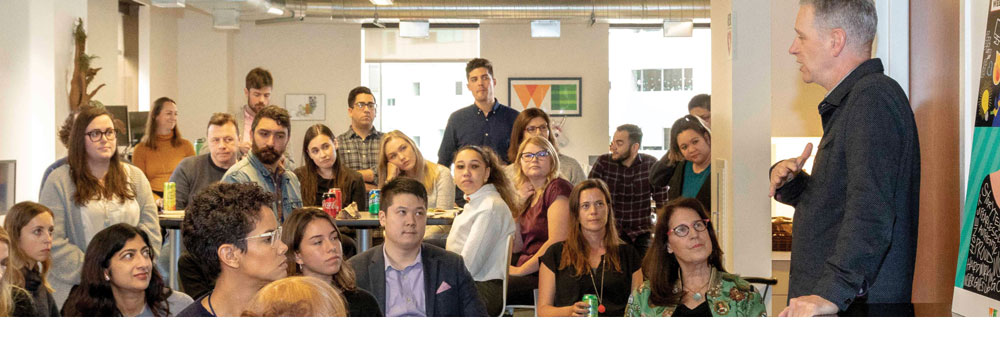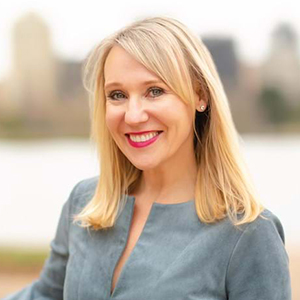

Rethinking Net Zero for an Equitable World
The term “net zero” first rose to mainstream prominence with the signing of the historic Paris Agreement. Seven years later, with “net zero” positioned as the end goal of most corporate Environmental, Social, and Governance (ESG) narratives, it has become part of the shared vocabulary between audiences as varied as environmentalists, policymakers, investors, and customers.
Consensus on the necessity of climate action has never been higher, but many are starting to believe that, for all the talk, results are underwhelming. A recent Pew Research Center survey found that while 80 percent of respondents are willing to make lifestyle changes to help stem climate change, only 46 percent are confident that actions taken by the international community will significantly reduce effects of global warming.
I have personally seen how the concept of “net zero” has brought disparate audiences together by developing a common understanding of the climate crisis. As a goal, however, it was perhaps too ambitious and idealistic. With carbon measurement still in its infancy, there is often little correlation between different ESG ratings, leading to outcomes of varied success. Carbon offsets are also exploited as shortcuts to net zero pathways, encouraging a race to zero numerically without the ultimate impact: Reduced pollution loads.
It’s time to re-examine the centrality of net zero in sustainability initiatives. Our latest WE Brands in Motion report, “Making Net Zero Net Positive for Everyone,” found that today’s leaders have a more holistic definition of their responsibilities and stakeholders. They want to move the needle on climate change and ensure that no one affected by the change is left behind — a concept known as “just transition.”
Why a “just transition” matters
As we have experienced during the COVID-19 pandemic, the human and economic costs of a global crisis are not shared equally. According to the latest Intergovernmental Panel on Climate Change (IPCC) report, people and ecosystems least able to cope with the effects of climate change will be the hardest hit. Extreme weather, such as increased heat waves, droughts, and floods, has already exposed millions of people to acute food and water insecurity, especially among lower-income populations ill-equipped to deal with the increasing risks.

And what about the people and communities whose livelihoods depend on carbon-intensive sectors? An estimated six million jobs in the fossil fuel industry could disappear by the end of the decade, and many of the new “green” jobs will require retooling workers with different skill sets. In fact, 69 percent of survey respondents believe brands should invest in projects to protect jobs and livelihoods in communities most affected by climate change, with sustainable tech investments, community outreach and reskilling workers identified as the top three solutions favored. Change is already in the air: Australia, a major coal user, has already begun to retrain millions of fossil fuel workers to new roles in wind and solar energy production.
Transition is necessary, but it does not mean we have to do it at the expense of vulnerable communities. A “just transition” encompasses equitable change that integrates socioeconomic and employment considerations. The alternative is an unruly, unjust, and ultimately costly transition for businesses to navigate.
How can brands incorporate “just transition” principles into their ESG strategy?
Assess
Before drafting your sustainability programs, assess the human impact of actions by taking a 360° view of implications and reactions to activities, and adopt safeguards to prevent or mitigate any negative repercussions. Conduct surveys and establish focus groups with affected communities to better grasp their circumstances and understand downstream decision impacts. At the same time, ensure that there is organizational buy-in and alignment and that you understand the expectations of your stakeholders. Our Brands in Motion report unearthed a gap between C-suite aspirations and companywide perceptions. While 61 percent of C-suite leadership say their company is implementing or planning to implement a “just transition” strategy, only 40 percent of senior and middle managers are aware of such initiatives.

Engage
Stakeholder engagement is pivotal to all “just transition” strategies. From initial discussions, analysis and setting goals, through to planning, delivery, monitoring and reporting, it is important to facilitate social dialogue between workers and employers, and potentially governments and communities. Meanwhile, leave the rhetoric at the door. Our WE Brands in Motion report “The Bravery Mandate” found that authenticity is key to effective communications. Overly simplistic, utopian statements about shifting to a world of climate-friendly jobs are unlikely to go down well. In contrast, honesty about the nature of the challenge is likely to be far more effective — and will go a long way toward a just and orderly transition.
Act
Having established alignment across the board, brands should actively partner with industry to accelerate change. These partnerships signal a move beyond “corporate” sustainability; companies that do so are taking on social and governance responsibilities, ultimately netting them industry and broader recognition for their achievements. Brands planning to get serious about creating a just transition must consider the entire ecosystem and create solutions for implementing structural change in their industries.
In the face of rising pressure around ESG, knowing where to start can be overwhelming — especially when the path ahead appears to be full of potholes, from the risk of greenwashing to the predicament of trying to please all and, in doing so, satisfy none. There are no easy answers, but more than two decades of working with organizations to develop and implement communications frameworks and strategies have taught me that all authentic and meaningful ESG programs are constantly evolving — so that even the smallest of steps forward can have a profound impact.
Learn more about our environmental sustainability services »
The latest blogs from WE
MNCs in China Must Prioritize Internal Communications
To Tell Your ESG Story, Think Digital
5 Ways Tech Will Reshape Culture in 2024


